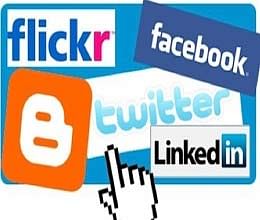
Facebook and other social networks tend to promote self-esteem but also lower self-control both on and offline, says new research.
The finding demonstrates that users who are focused on close friends tend to experience an increase in self-esteem while browsing their social networks; afterwards, these users display less self-control.
Greater social network use among this category of users with strong ties to their friends is also associated with individuals having higher body-mass indexes and higher levels of credit-card debt, according to the paper, the Journal of Consumer Research reports.
"To our knowledge, this is the first research to show that using online social networks can affect self-control," said study co-author Andrew T. Stephen, assistant professor of business administration at the University of Pittsburgh School of Business and College of Business Administration.
"We have demonstrated that using today's most popular social network, Facebook, may have a detrimental affect on people's self-control," added Stephen, according to a Pittsburgh statement.
Stephen co-authored the research with Keith Wilcox, assistant professor of marketing at Columbia Business School.
The paper includes the results of five separate studies conducted with a total of more than 1,000 US Facebook users.
Stephen and Wilcox say these studies have implications for policy makers because self-control is an important mechanism for maintaining social order and well-being.
"It would be worthwhile for researchers and policy makers to further explore social network use in order to better understand which consumers may be particularly vulnerable to suffering negative psychological or social consequences," the authors wrote.
The finding demonstrates that users who are focused on close friends tend to experience an increase in self-esteem while browsing their social networks; afterwards, these users display less self-control.
Greater social network use among this category of users with strong ties to their friends is also associated with individuals having higher body-mass indexes and higher levels of credit-card debt, according to the paper, the Journal of Consumer Research reports.
"To our knowledge, this is the first research to show that using online social networks can affect self-control," said study co-author Andrew T. Stephen, assistant professor of business administration at the University of Pittsburgh School of Business and College of Business Administration.
"We have demonstrated that using today's most popular social network, Facebook, may have a detrimental affect on people's self-control," added Stephen, according to a Pittsburgh statement.
Stephen co-authored the research with Keith Wilcox, assistant professor of marketing at Columbia Business School.
The paper includes the results of five separate studies conducted with a total of more than 1,000 US Facebook users.
Stephen and Wilcox say these studies have implications for policy makers because self-control is an important mechanism for maintaining social order and well-being.
"It would be worthwhile for researchers and policy makers to further explore social network use in order to better understand which consumers may be particularly vulnerable to suffering negative psychological or social consequences," the authors wrote.










